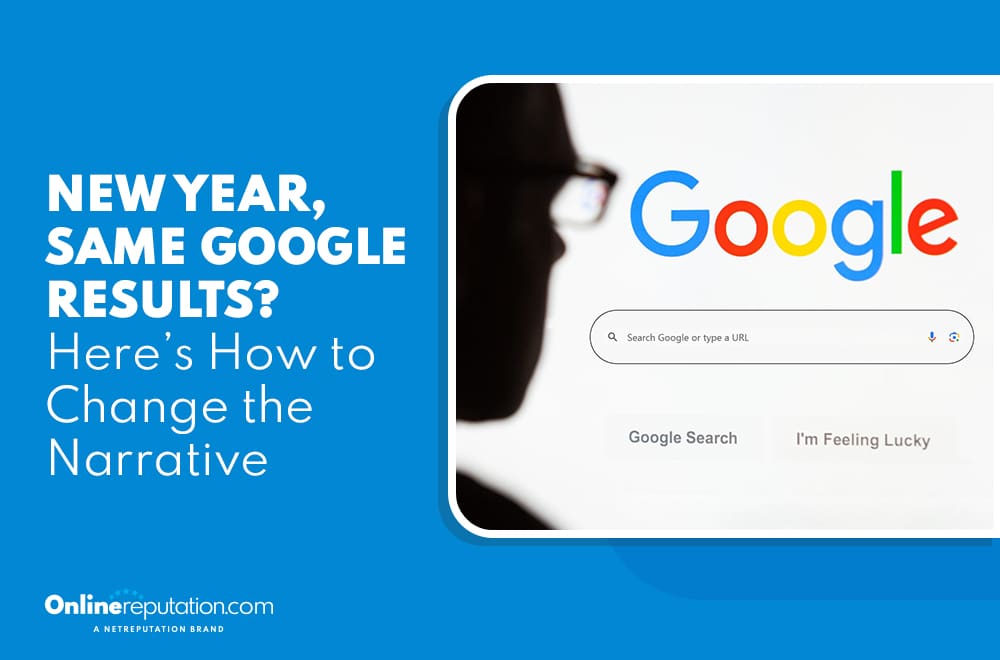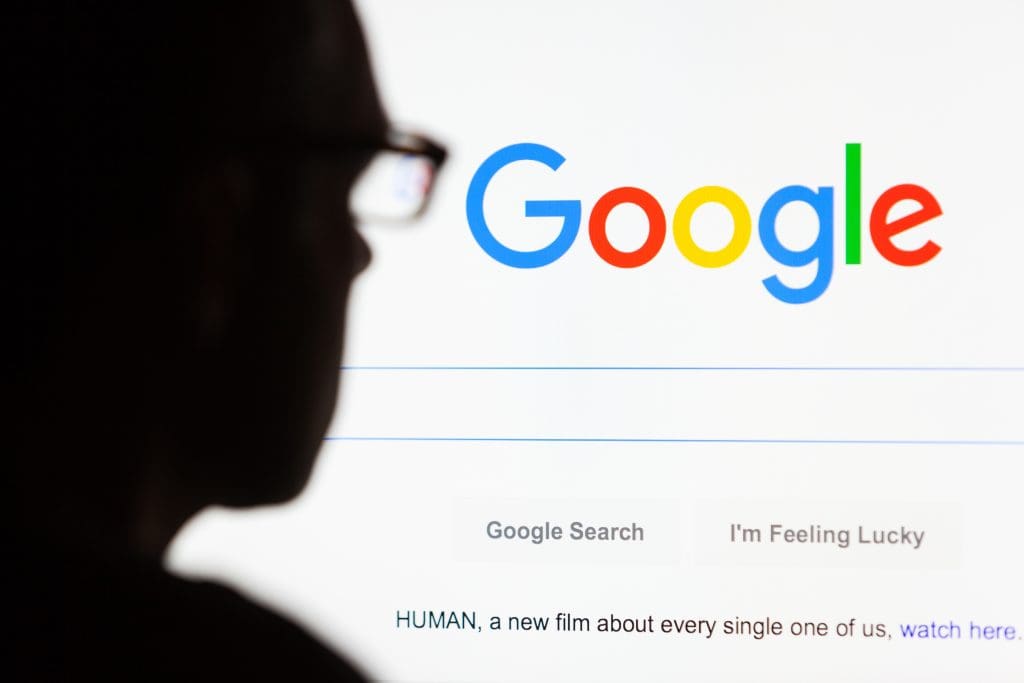
This article gives an overview of how Google results may be shaping your brand narrative, as well as steps you can take to change it.
As we step into 2026, Google continues to shape what we see online, playing a crucial role in how we interact with information. But do you ever wonder if those Google search results tell the full story, especially regarding your online reputation?
Search results don’t just reflect reality — they frame it. What shows up on the first page of Google often becomes the default opinion for potential customers, employers, investors, and partners.
A single outdated article, negative review, or misleading headline can outweigh years of positive work if it ranks highly and gets a lot of visibility. In many cases, perception becomes reality long before someone ever interacts with you or your brand.
That’s why managing how your business appears in Google search results and other Google services isn’t about vanity; it’s about control, accuracy, and trust.
If you need help shaping Google search results and other Google services to work in your favor, call us at 844-230-3803 to speak with an expert.
The Current State of Google Search Results

Google services are constantly evolving, and Google Search is influenced by advancements in artificial intelligence (AI) and the ever-changing demands of users. Google services like the Gemini AI model and Performance Max highlight Google’s ongoing efforts to provide better search experiences. These technologies aim to answer complex queries more intuitively while reshaping how businesses and individuals interact with Google search results, including how one’s personal or professional reputation appears on search pages.
However, as Google services become more sophisticated, challenges also increase. Balancing innovation with fairness and accuracy has never been more critical, especially when it comes to individual reputations.
What Does the “Narrative” of Google Search Results Mean?

For our purposes, the term “narrative” refers to the story Google tells through its search results — prioritizes content, organizes additional information and shapes what users first see on Google search pages. Over the years, Google has shifted from a simple search engine to a much more powerful platform.
How Has the Narrative Evolved?
Google’s approach has changed dramatically. What started as a basic indexing tool has grown into a platform powered by advanced AI and machine learning. Key milestones include:
- Predictive Search: This anticipates user needs before they fully type a query, impacting how quickly and prominently personal information appears in Google search results.
- Enhanced Ad Targeting: This tool helps businesses connect with specific audiences while also affecting how personal reputations are managed online.
- Tools like Google Analytics: These give creators and marketers deeper insights into their performance, which they can use to manage and improve online reputations.
These advancements improve functionality but also raise questions about transparency, bias, and how much control users have over the information they see, especially concerning personal narratives.
Why Should We Care About Changing the Narrative?

Brand narrative isn’t just about what’s online — it’s also about overall trust and reputation. Google’s decisions influence everything from public opinion to business success to personal and business reputations. As competitors like Microsoft and OpenAI challenge the status quo, Google must stay fair and accountable.
By updating the narrative, we ensure Google search results are diverse, accurate, and aligned with user needs, protecting both personal and professional reputations. This benefits not just advertisers but everyone who relies on Google services for reliable information.
What’s the Impact on Society?
Google search results affect how we learn, shop, and even make life decisions. Biased or unreliable results can mislead users, skew public opinion, or reinforce harmful stereotypes, impacting personal reputations.
For example:
- Transparency Issues: Users don’t understand how search algorithms and Google services work, leading to misinterpretation.
- Ad Overload: Paid promotions overshadow organic content, reducing trust and affecting online perception.
- Content Bias: Algorithms often favor popular or well-funded sources, leaving smaller voices unheard.
By addressing these challenges, Google can foster a healthier digital environment where users feel confident in what they see and where personal reputations are accurately and fairly represented.
What Can We Do to Change the Narrative?

Everyone has a role in reshaping the online narrative. Here’s how individuals, businesses, and even Google itself can make an impact:
1. Diversify Search Algorithms
Encourage Google to prioritize diverse perspectives. This includes amplifying underrepresented voices, sourcing content globally, and using feedback loops to improve fairness.
2. Promote Inclusive Content
Content creators should aim for inclusivity by sharing stories that reflect diverse cultures, experiences, and viewpoints. Businesses can collaborate with minority-led organizations to further amplify these voices, ensuring that personal reputations are represented fairly.
3. Address Data Biases
Regular audits of search algorithms can identify and correct biases. This ensures search results represent a broader spectrum of viewpoints, not just the loudest or most-funded ones, which is crucial for personal reputation management.
4. Educate Users
Google can help users understand how their search habits influence results. Interactive guides, tutorials, and webinars can demystify Google services and empower users to make more informed choices. Everything from search history and recent history to Google app activity can influence what users see on search results pages.
How Can Businesses Adapt?
For businesses, understanding how Google services shape brand narratives is key to staying competitive. Here are three ways to adjust:
- Invest in SEO: Use targeted keywords to ensure visibility in a crowded digital marketplace.
- Create High-Quality Content: Focus on relevance and authenticity to build trust with your audience and maintain a positive online reputation.
- Leverage Analytics: Monitor performance data to refine strategies and improve engagement.
Adopting these practices helps businesses thrive while contributing to a more equitable online space. The goal is for personal and business reputations to be accurately represented.
What’s Next for Google and the Digital Landscape?

As we move forward, the goal is simple: balance innovation with responsibility. Google can lead this charge by prioritizing transparency, promoting diverse voices, and ensuring its tools serve all users equitably, including when it comes to reputation management. For individuals and businesses, the message is clear: Don’t just consume the narrative, help shape it, too.
OnlineReputation.com provides information and services to help you protect your digital presence. Get started with a free online reputation analysis here.
You might also like
Franchise Review Management Strategies for Consistent Brand Success
This article gives an overview of how Google results may be shaping your brand narrative, as well as steps you …

